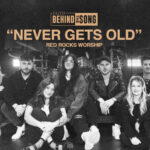Music possesses a unique ability to resonate with the human spirit, and this is perhaps nowhere more evident than in Songs About Freedom. My journey in understanding this power began with a harsh song of my own creation, filled with anger. My father, upon hearing it, wisely cautioned me against using music as a vehicle for hate and violence. He emphasized music’s true purpose: to unite, to advocate for peace, to embody art and beauty, transcending mere politics. This early lesson shaped my appreciation for the profound impact music can have, especially when it comes to the universal yearning for freedom.
Years later, I recognize the truth in his words and the undeniable role music played in movements like the fight against apartheid and the liberation of Nelson Mandela. Tracks like Johnny Clegg’s “Asimbonanga” and Peter Gabriel’s “Biko” became anthems, amplifying international pressure against South Africa’s unjust regime. These weren’t just songs; they were powerful tools of protest and awareness.
Indeed, the impact of freedom songs often surpasses that of political speeches. While many political addresses fade into history, the lyrics of Bob Marley’s “Redemption Song” – “Emancipate yourselves from mental slavery” – remain etched in collective memory and continue to inspire. Even the most memorable political speeches, such as those by Haile Selassie, Martin Luther King Jr., or John F. Kennedy, often possess a song-like quality in their rhythm and delivery, further highlighting the inherent musicality of impactful communication.
This potency stems from music’s ability to bypass the intellect and speak directly to the heart. There’s an inherent truth in a sung message that resonates deeply. The rise of protest songs in the 1960s exemplified this, with music becoming a catalyst for social change. Decades later, rap music emerged as a raw and unflinching voice reporting on social realities often ignored. In our current digital age, the reach of songs about social commentary and freedom has expanded exponentially. Artists no longer need major labels to share their message; online platforms provide a direct avenue to connect with a global audience and fuel conversations about liberty and justice through their music.

